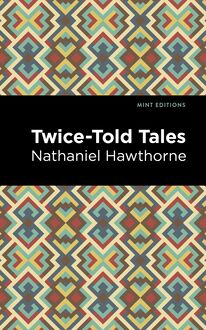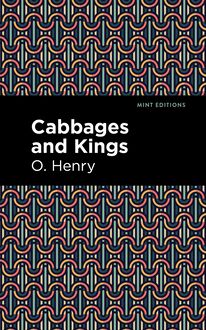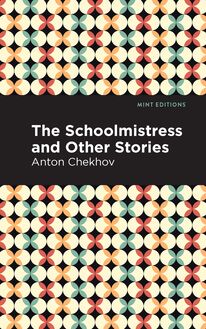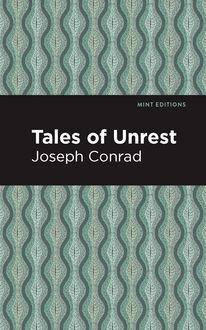-
 Univers
Univers
-
 Ebooks
Ebooks
-
 Livres audio
Livres audio
-
 Presse
Presse
-
 Podcasts
Podcasts
-
 BD
BD
-
 Documents
Documents
-
- Cours
- Révisions
- Ressources pédagogiques
- Sciences de l’éducation
- Manuels scolaires
- Langues
- Travaux de classe
- Annales de BEP
- Etudes supérieures
- Maternelle et primaire
- Fiches de lecture
- Orientation scolaire
- Méthodologie
- Corrigés de devoir
- Annales d’examens et concours
- Annales du bac
- Annales du brevet
- Rapports de stage
La lecture à portée de main
Vous pourrez modifier la taille du texte de cet ouvrage
Découvre YouScribe en t'inscrivant gratuitement
Je m'inscrisDécouvre YouScribe en t'inscrivant gratuitement
Je m'inscrisEn savoir plus
Vous pourrez modifier la taille du texte de cet ouvrage
En savoir plus

Description
Fifty Famous Stories Retold (1895), the classic collection of lore recounted by James Baldwin, serves as an early foundation for the love of literature. This volume was widely used in the United States public school system as a primer of many of the most enduring stories of Western culture. What all these stories share is their indelible mark in the worlds of letters, art, music, and drama; while these are the elemental blocks for continued literary studies, these tales of legend and history are timelessly delightful in their ability to charm and dazzle young readers.
Among the fifty stories in the collection are; “A Story of Robin Hood,” “Sir Walter Raleigh,” “Pocahontas,” “George Washington and his Hatchet,” “The Story of William Tell,” “How Napoleon Crossed the Alps,” “Androclus and the Lion,” “Julius Caesar,” and “Diogenes the Wise Man” as well as many lesser known, yet indispensable tales.
With an eye-catching new cover, and professionally typeset manuscript, this edition of Fifty Famous Stories Retold is both modern and readable.
Sujets
Informations
| Publié par | Mint Editions |
| Date de parution | 22 septembre 2020 |
| Nombre de lectures | 0 |
| EAN13 | 9781513265506 |
| Langue | English |
| Poids de l'ouvrage | 3 Mo |
Informations légales : prix de location à la page 0,0400€. Cette information est donnée uniquement à titre indicatif conformément à la législation en vigueur.
Extrait
Fifty Famous Stories Retold
James Baldwin
Fifty Famous Stories Retold was first published in 1896.
This edition published by Mint Editions 2020.
ISBN 9781513264820 | E-ISBN 9781513265506
Published by Mint Editions®
minteditionbooks .com
Publishing Director: Jennifer Newens
Project Manager: Gabrielle Maudiere
Design & Production: Rachel Lopez Metzger
C ONTENTS K ING A LFRED AND THE C AKES K ING A LFRED AND THE B EGGAR K ING C ANUTE ON THE S EASHORE T HE S ONS OF W ILLIAM THE C ONQUEROR T HE W HITE S HIP K ING J OHN AND THE A BBOT A S TORY OF R OBIN H OOD B RUCE AND THE S PIDER T HE B LACK D OUGLAS T HREE M EN OF G OTHAM O THER W ISE M EN OF G OTHAM T HE M ILLER OF THE D EE S IR P HILIP S IDNEY T HE U NGRATEFUL S OLDIER S IR H UMPHREY G ILBERT S IR W ALTER R ALEIGH P OCAHONTAS G EORGE W ASHINGTON AND HIS H ATCHET G RACE D ARLING T HE S TORY OF W ILLIAM T ELL A RNOLD W INKELRIED T HE B ELL OF A TRI H OW N APOLEON CROSSED THE A LPS T HE S TORY OF C INCINNATUS T HE S TORY OF R EGULUS C ORNELIA ’ S J EWELS A NDROCLUS AND THE L ION H ORATIUS AT THE B RIDGE J ULIUS C ÆSAR T HE S WORD OF D AMOCLES D AMON AND P YTHIAS A L ACONIC A NSWER T HE U NGRATEFUL G UEST A LEXANDER AND B UCEPHALUS D IOGENES THE W ISE M AN T HE B RAVE T HREE H UNDRED S OCRATES AND HIS H OUSE T HE K ING AND HIS H AWK D OCTOR G OLDSMITH T HE K INGDOMS T HE B ARMECIDE F EAST T HE E NDLESS T ALE T HE B LIND M EN AND THE E LEPHANT M AXIMILIAN AND THE G OOSE B OY T HE I NCHCAPE R OCK W HITTINGTON AND HIS C AT C ASABIANCA A NTONIO C ANOVA P ICCIOLA M IGNON
C ONCERNING T HESE S TORIES
There are numerous time-honored stories which have become so incorporated into the literature and thought of our race that a knowledge of them is an indispensable part of one’s education. These stories are of several different classes. To one class belong the popular fairy tales which have delighted untold generations of children, and will continue to delight them to the end of time. To another class belong the limited number of fables that have come down to us through many channels from hoar antiquity. To a third belong the charming stories of olden times that are derived from the literatures of ancient peoples, such as the Greeks and the Hebrews. A fourth class includes the half-legendary tales of a distinctly later origin, which have for their subjects certain romantic episodes in the lives of well-known heroes and famous men, or in the history of a people.
It is to this last class that most of the fifty stories contained in the present volume belong. As a matter of course, some of these stories are better known, and therefore more famous , than others. Some have a slight historical value; some are useful as giving point to certain great moral truths; others are products solely of the fancy, and are intended only to amuse. Some are derived from very ancient sources, and are current in the literature of many lands; some have come to us through the ballads and folk tales of the English people; a few are of quite recent origin; nearly all are the subjects of frequent allusions in poetry and prose and in the conversation of educated people. Care has been taken to exclude everything that is not strictly within the limits of probability; hence there is here no trespassing upon the domain of the fairy tale, the fable, or the myth.
That children naturally take a deep interest in such stories, no person can deny; that the reading of them will not only give pleasure, but will help to lay the foundation for broader literary studies, can scarcely be doubted. It is believed, therefore, that the present collection will be found to possess an educative value which will commend it as a supplementary reader in the middle primary grades at school. It is also hoped that the book will prove so attractive that it will be in demand out of school as well as in.
Acknowledgments are due to Mrs. Charles A. Lane, by whom eight or ten of the stories were suggested.
K ING A LFRED AND THE C AKES
Many years ago there lived in Eng-land a wise and good king whose name was Al-fred. No other man ever did so much for his country as he; and people now, all over the world, speak of him as Alfred the Great.
In those days a king did not have a very easy life. There was war almost all the time, and no one else could lead his army into battle so well as he. And so, between ruling and fighting, he had a busy time of it indeed.
A fierce, rude people, called the Danes, had come from over the sea, and were fighting the Eng-lish. There were so many of them, and they were so bold and strong, that for a long time they gained every battle. If they kept on, they would soon be the masters of the whole country.
At last, after a great battle, the English army was broken up and scat-tered. Every man had to save himself in the best way he could. King Alfred fled alone, in great haste, through the woods and swamps.
Late in the day the king came to the hut of a wood-cut-ter. He was very tired and hungry, and he begged the wood-cut-ter’s wife to give him something to eat and a place to sleep in her hut.
The wom-an was baking some cakes upon the hearth, and she looked with pity upon the poor, ragged fellow who seemed so hungry. She had no thought that he was the king.
“Yes,” she said, “I will give you some supper if you will watch these cakes. I want to go out and milk the cow; and you must see that they do not burn while I am gone.”
King Alfred was very willing to watch the cakes, but he had far greater things to think about. How was he going to get his army to-geth-er again? And how was he going to drive the fierce Danes out of the land? He forgot his hunger; he forgot the cakes; he forgot that he was in the woodcutter’s hut. His mind was busy making plans for to-mor-row.
In a little while the wom-an came back. The cakes were smoking on the hearth. They were burned to a crisp. Ah, how angry she was!
“You lazy fellow!” she cried. “See what you have done! You want some-thing to eat, but you do not want to work!”
I have been told that she even struck the king with a stick; but I can hardly be-lieve that she was so ill-na-tured.
The king must have laughed to himself at the thought of being scolded in this way; and he was so hungry that he did not mind the woman’s angry words half so much as the loss of the cakes.
I do not know whether he had any-thing to eat that night, or whether he had to go to bed without his supper. But it was not many days until he had gath-ered his men to-geth-er again, and had beaten the Danes in a great battle.
K ING A LFRED AND THE B EGGAR
At one time the Danes drove King Alfred from his kingdom, and he had to lie hidden for a long time on a little is-land in a river.
One day, all who were on the is-land, except the king and queen and one servant, went out to fish. It was a very lonely place, and no one could get to it except by a boat. About noon a ragged beggar came to the king’s door, and asked for food.
The king called the servant, and asked, “How much food have we in the house?”
“My lord,” said the servant, “we have only one loaf and a little wine.”
Then the king gave thanks to God, and said, “Give half of the loaf and half of the wine to this poor man.”
The servant did as he was bidden. The beggar thanked the king for his kindness, and went on his way.
In the after-noon the men who had gone out to fish came back. They had three boats full of fish, and they said, “We have caught more fish to-day than in all the other days that we have been on this island.”
The king was glad, and he and his people were more hopeful than they had ever been before.
When night came, the king lay awake for a long time, and thought about the things that had happened that day. At last he fancied that he saw a great light like the sun; and in the midst of the light there stood an old man with black hair, holding an open book in his hand.
It may all have been a dream, and yet to the king it seemed very real indeed. He looked and wondered, but was not afraid.
“Who are you?” he asked of the old man.
“Alfred, my son, be brave,” said the man; “for I am the one to whom you gave this day the half of all the food that you had. Be strong and joyful of heart, and listen to what I say. Rise up early in the morning and blow your horn three times, so loudly that the Danes may hear it. By nine o’clock, five hundred men will be around you ready to be led into battle. Go forth bravely, and within seven days your en-e-mies shall be beaten, and you shall go back to your kingdom to reign in peace.”
Then the light went out, and the man was seen no more.
In the morning the king arose early, and crossed over to the mainland. Then he blew his horn three times very loudly; and when his friends heard it they were glad, but the Danes were filled with fear.
At nine o’clock, five hundred of his bravest soldiers stood around him ready for battle. He spoke, and told them what he had seen and heard in his dream; and when he had fin-ished, they all cheered loudly, and said that they would follow him and fight for him so long as they had strength.
So they went out bravely to battle; and they beat the Danes, and drove them back into their own place. And King Alfred ruled wisely and well over all his people for the rest of his days.
K ING C ANUTE ON THE S EASHORE
A hundred years or more after the time of Alfred the Great there was a king of England named Ca-nut é . King Canute was a Dane; but the Danes were not so fierce and cruel then as they had been when they were at war with King Alfred.
The great men and of-fi-cers who were around King Canute were alway
-
 Univers
Univers
-
 Ebooks
Ebooks
-
 Livres audio
Livres audio
-
 Presse
Presse
-
 Podcasts
Podcasts
-
 BD
BD
-
 Documents
Documents
-
Jeunesse
-
Littérature
-
Ressources professionnelles
-
Santé et bien-être
-
Savoirs
-
Education
-
Loisirs et hobbies
-
Art, musique et cinéma
-
Actualité et débat de société
-
Jeunesse
-
Littérature
-
Ressources professionnelles
-
Santé et bien-être
-
Savoirs
-
Education
-
Loisirs et hobbies
-
Art, musique et cinéma
-
Actualité et débat de société
-
Actualités
-
Lifestyle
-
Presse jeunesse
-
Presse professionnelle
-
Pratique
-
Presse sportive
-
Presse internationale
-
Culture & Médias
-
Action et Aventures
-
Science-fiction et Fantasy
-
Société
-
Jeunesse
-
Littérature
-
Ressources professionnelles
-
Santé et bien-être
-
Savoirs
-
Education
-
Loisirs et hobbies
-
Art, musique et cinéma
-
Actualité et débat de société
- Cours
- Révisions
- Ressources pédagogiques
- Sciences de l’éducation
- Manuels scolaires
- Langues
- Travaux de classe
- Annales de BEP
- Etudes supérieures
- Maternelle et primaire
- Fiches de lecture
- Orientation scolaire
- Méthodologie
- Corrigés de devoir
- Annales d’examens et concours
- Annales du bac
- Annales du brevet
- Rapports de stage




















